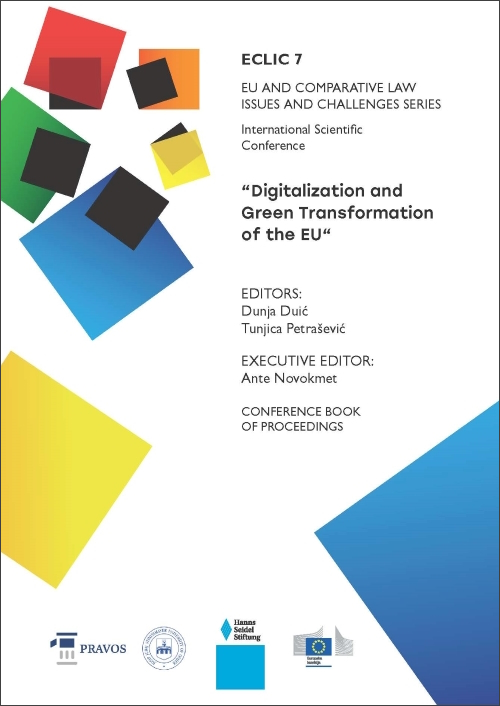CORRECTING MISCARRIAGES OF JUSTICE IN CROATIA
ACCESSION AND TIME-LIMITED RETENTION OF DNA PROFILES IN THE JURISPRUDENCE OF THE EUROPEAN COURT OF HUMAN RIGHTS
DOI:
https://doi.org/10.25234/eclic/27459Abstract
The emergence of Innocence Projects in Croatia in 2015 sparked an interest in the fate of wrongfully convicted individuals and the potential of post-conviction DNA examination. In 2020, the experimental Innocence Project was established at the Faculty of Law in Zagreb, funded by the Croatian Science Foundation to raise public awareness of miscarriages of justice, advocate for legal changes to make it easier for defendants to reopen their cases, and provide legal representation for those believed to be wrongfully convicted. This article delves into the use and handling of DNA information by law enforcement agencies and its treatment within the jurisprudence of the European Court of Human Rights and in the Croatian national criminal legislation. However, concerns have been raised regarding the retention, use, and time-limited frameworks of DNA data in law enforcement databases, particularly concerning the presumption of innocence for individuals who have not been convicted of a crime. The European Court of Human Rights adopted the “Marper” test to address this issue and to ensure that all DNA data is expunged from law enforcement databases when it is not relevant to criminal investigations. This test balances the government’s interests in crime prevention and criminal investigation against individual citizens’ privacy interests, making it essential in addressing wrongful convictions. Using the theoretical, comparative, case study, and dogmatic method The article examines the legal standards of the Council of Europe and the European Union, the jurisprudence of the European Court of Human Rights, as well as Croatian positive legal standards on the retention and use of DNA data and applicable databases. Finally, the article suggests potential legislative reforms in Croatia to improve the utilization, storage, and ramification of DNA data and the use of forensic DNA databases to address miscarriages of justice, particularly in “cold cases”.
Downloads
Published
How to Cite
Issue
Section
License
Copyright (c) 2023 Damir Primorac, Andrej Božinovski

This work is licensed under a Creative Commons Attribution-NonCommercial 4.0 International License.
Authors retain the copyright on the papers published in the Journal, but grant the right of first publication to the Journal. Papers accepted for publication or already published in ECLIC of the Faculty of Law in Osijek may be published by the author(s) in other publications only with proper notice of its previous publication in ECLIC.


